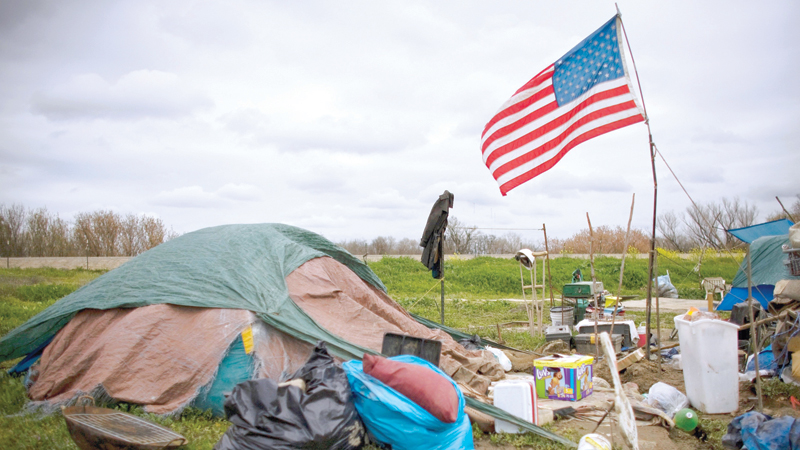

Taxing San Francisco’s wealthiest companies to rein in the city’s homelessness problem makes sense to local campaigners — but the local tech giants aren’t all so sure.
On November 6, voters in the city that is the home base of Twitter, Uber and Airbnb will decide the fate of “Proposition C,” a local ballot measure brought about by a 28,000 signature petition this summer.
Designed to rake in $250 to $300 million in taxes per year, the Robin Hood-esque measure would fund housing for 5,000 people and finance mental health and housing aid services, its backers say.
Generally, San Francisco’s tech bosses — including Twitter’s Jack Dorsey and Patrick Collison of payment start-up Stripe — have resisted the proposal.
But billionaire Marc Benioff, head of cloud computing firm Salesforce, has pumped funding into the “Yes On C” campaign.
The campaign’s blue and yellow banners are plastered around the city of 890,000, famed for the Golden Gate Bridge and its old-school cable cars. “We have 70 billionaires in San Francisco [Bay Area region]. Not all of them are giving money away. A lot of them are just hoarding it,” Benioff said in an interview with The Guardian.
Dorsey, who has argued frequently with Benioff about the issue on Twitter, instead calls for “long term solutions” — “not quick acts to make us feel good for one moment in time.” “I want to help fix the homeless problem in SF and California,” he tweeted earlier this month.
“I don’t believe this (Prop C) is the best way to do it,” he added, expressing his “trust” in Mayor London Breed to sort the issue.
According to the city council, which opposes the measure, some 7,500 people sleep outside every night in San Francisco. Every year, local services see around 20,000 different homeless people — and the city says it is spending $250 million per year on fighting the housing crisis.
San Francisco’s homeless population is concentrated in the central Tenderloin district. Many suffer from mental and physical illnesses, and live among garbage and drug paraphernalia.
Pushing carts filled with shabby belongings, some roam along Market Street, not far from the headquarters of Uber and Twitter.
For San Francisco natives, the tech boom has worsened a housing crisis as real estate prices soared: $3,000 a month will get you a pokey studio, and unless you have at least $1 million to spend, you can wave goodbye to buying.
“These tech CEOs, they need to realise if they want to do business in San Francisco and use all of our civic resources, then they should be more than happy to give a small amount — which is what it is for these companies,” Benioff recently told CNN Business. — AFP
Oman Observer is now on the WhatsApp channel. Click here



